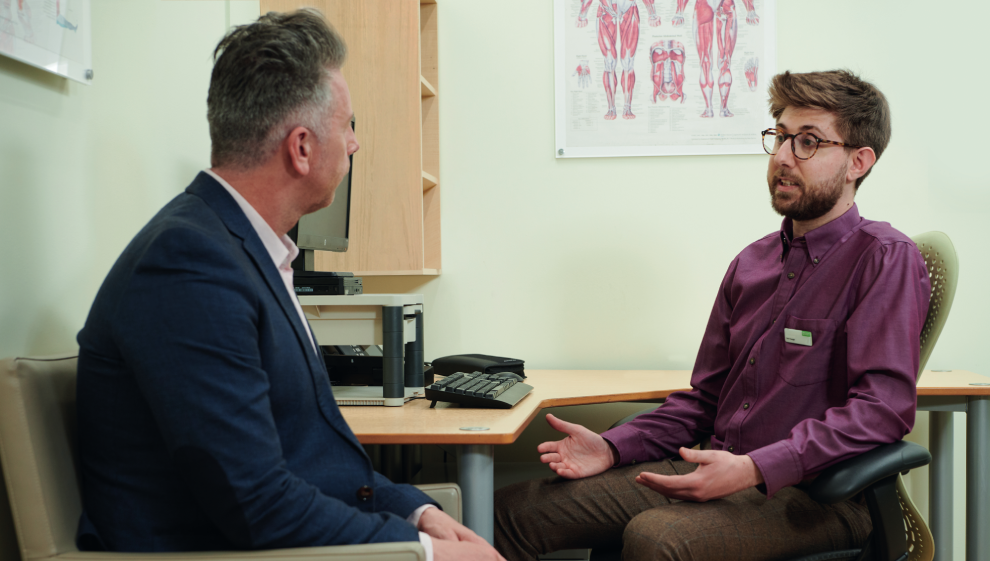5 reasons men avoid going to the doctor
A widespread problem
65% of men say they avoid seeking medical help for as long as possible when they’re unwell, and unfortunately, the problems don’t stop once men are through the door. 37% of men say they withhold information from their doctor, and a further 20% admit they aren’t always honest during these conversations.
Research also shows the disparity in the number of men and women visiting their doctor increases in deprived populations, with 65% preferring to self-diagnose before they go see their doctor. In older demographics, one study found long waiting times were the number one reason (80.8%) men over 65 are less likely to pay their GP a visit.
In this article, Dr Asif Naseem breaks down five of the most common reasons men give for avoiding medical attention and putting off routine appointments with healthcare professionals.
1. “Men shouldn’t talk about their health”
41% of men recall being told that “men don’t complain about health issues” as children.

Gender stereotypes like this that get reinforced over time can contribute to alarming differences in the ways men and women deal with health and wellbeing issues.
Inaccurate and unfounded phrases like “man up” and “take it like a man” have unfortunately contributed to our perception of what it means to be a man. Sentiments like this can teach young men to suppress genuine emotions and not reach out for help when they need it.
Being told “boys don’t cry” at a young age reinforces the idea that men should deal with their problems on their own, without sharing how they’re feeling on the inside. Men can carry these stubborn notions into adulthood, making them less likely to admit there’s a problem and seek help from their doctor when something is concerning them.
We all need to recognise that there is no “right” way to be a man. Men are all different and deal with health problems differently. By encouraging male friends and family members to open up and talk in a safe space, we start to challenge these outdated stereotypes and help more men feel comfortable getting help when they need it.
2. “It’ll get better on its own”
We’re all guilty of noticing something that’s not quite right and waiting a few days to see if it gets better or worse. Unfortunately, men are doing it a lot more than women.
Research backs this up, with one study finding that 58% of men have ignored a medical issue in the hope it would disappear on its own.
At the heart of this is a self-determination to solve problems without outside help. There can also be an element of fear around what you’ve discovered turning out to be something serious. Unfortunately, ignoring something you’re worried about can mean missing the opportunity to catch something potentially serious early on.
The good thing to remember is that a doctor will either say “There’s nothing to worry about” or “We managed to catch that early”. Either way, there’s no need to suffer in silence and create a bigger problem for yourself down the road.
3. “I’m wasting their time and money”
Men and women share common worries about wasting their doctor's time with problems they perceive to be “unworthy” of expert attention.
One study found that one in five people in the UK would put off getting a test out of fear they’re wasting the doctor's time. Another found that many people felt that symptoms that weren’t persistent, worsening, or life-threatening did not warrant attention from their GP.
Wasting resources is another concern that can prevent people from accessing healthcare. Sensationalised stories designed to highlight the strain on public funding for healthcare can cause people to question the validity of legitimate concerns.
Remember that:
- The purpose of healthcare is to treat health problems
- If you have recently been to the doctor, don’t feel guilty about visiting for something else
- Not getting help can mean you need to seek more specialist attention further down the line
- A GP will not consider the wider cost implications of a patient’s visit
- Visiting your GP with a legitimate health problem is not a “drain on public funds”
The bottom line is that it’s important to access healthcare when you need it, as ignoring symptoms or putting off getting help can mean you eventually require more attention further down the line. Problems that could be caught early on may eventually worsen and require more time, attention, and money to treat.
4. “I don’t have the time”
One study found that the number one reason (22%) men gave for avoiding the doctor was that they felt they were “too busy to go”.
Health can take a back seat to work and family life, but it’s important to make time for appointments if you have one. Unfortunately, the adage of “make time for your health or you’ll be forced to make time for your health” typically rings true.
The best thing you can do to make sure you’re not experiencing health problems as you get older is to get regular checkups and book an appointment with a GP to get anything concerning looked over.
5. “I’m worried about ‘embarrassing’ examinations”

Men routinely cite worries about examinations that can feel ‘invasive’ or ‘embarrassing’ as a reason for putting off medical attention. These typically include prostate, testicular, and rectal examinations.
This might be because women are traditionally more encouraged to get certain examinations like the smear test and breast checks at a younger age. Conversely, men don’t typically start thinking about their prostate health until something goes wrong with it.
The reality is that your doctor is a professional who has done your test many times before. They’ll know that some people feel embarrassed or apprehensive, and so they’ll do their best to make you feel comfortable and at ease.
You can always explain to them that you’re worried or anxious about the examination and they will walk you through what’s going to happen to help put your mind at ease. Try reminding yourself that getting tested is a necessary part of looking after your health and that it’ll be over before you know.
Last updated Thursday 23 May 2024
First published on Wednesday 22 May 2024

